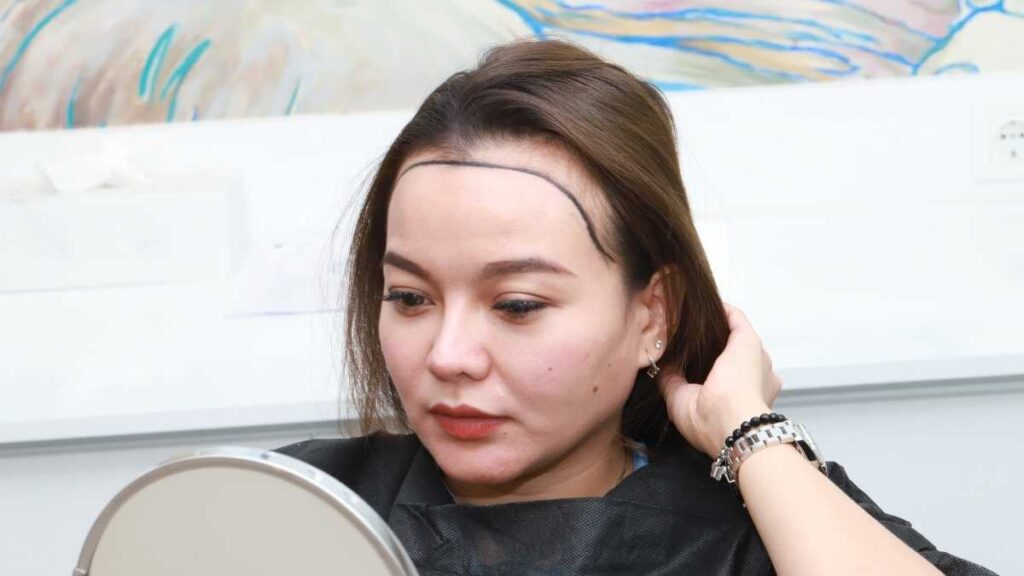Top 5 Factors That Affect Hair Transplantation
Hair loss is a common problem that affects everyone. In some cases, hair loss can be treated with medication or lifestyle changes. However, hair transplantation is often the most effective solution for people with more severe hair loss. Hair transplantation involves transplanting hair follicles from one part of the body to another, typically from the back or sides of the scalp to the balding areas. While hair transplantation has come a long way in recent years, the success rate can still vary based on a number of factors. In this blog post, we will explore the factors that affect hair transplant success rate.
1. The skill and experience of the surgeon
One of the most important factors that affect hair transplant success rate is the skill and experience of the surgeon. Hair transplantation is a delicate and complex procedure that requires a high level of expertise. A skilled and experienced surgeon can perform the procedure with greater precision and accuracy, resulting in better outcomes for the patient.
When considering hair transplantation, it is important to research the surgeon’s qualifications, training, clinic and experience. Look for a surgeon who is board-certified and has a proven track record of successful hair transplant surgeries. You can also ask to see before and after photos of previous patients to get a sense of the surgeon’s results.
2. The type of hair transplant technique used
There are two main types of hair transplant techniques: Follicular Unit Transplantation (FUT) and Follicular Unit Extraction (FUE). FUT involves removing a strip of skin from the donor area and dissecting it into individual follicular units for transplantation. FUE, on the other hand, involves extracting individual follicular units directly from the donor area using a tiny punch tool.
Both techniques have their pros and cons, and the choice of technique will depend on the patient’s individual needs and preferences. However, studies have shown that FUE has a higher success rate and lower risk of complications compared to FUT. This is because FUE is a minimally invasive technique that does not require a large incision or stitches, resulting in less scarring and a faster recovery time.
3. The quality and quantity of donor hair
The success of hair transplantation also depends on the quality and quantity of the donor hair. The donor hair should be healthy, strong, and resistant to hair loss. The more hair follicles available for transplantation, the greater the chance of a successful outcome.
Before undergoing hair transplantation, the surgeon will evaluate the quality and quantity of the donor hair to determine if the patient is a good candidate for the procedure. If the patient does not have enough donor hair, or if the hair is not of sufficient quality, the surgeon may recommend alternative treatments or a different hair transplant technique.
4. The patient’s age and health status
The success of hair transplantation can also be affected by the patient’s age and overall health status. Older patients may have thinner, weaker hair follicles that are less likely to survive the transplantation process. Patients with underlying health conditions, such as diabetes or autoimmune disorders, may also be at higher risk of complications during the procedure.
Before undergoing hair transplantation, the surgeon will evaluate the patient’s overall health status to determine if they are a good candidate for the procedure. If the patient has underlying health conditions, the surgeon may recommend alternative treatments or delay the procedure until the patient’s condition is under control.
5. Post-operative care
The success of hair transplantation also depends on the patient’s post-operative care. Following the procedure, the patient must follow the surgeon’s instructions for caring for the transplanted hair follicles. This may include avoiding strenuous physical activity, protecting the scalp from sun exposure, and taking prescribed medications to promote healing and prevent infection.
Female Hair Transplant Success Rate

Hair loss is not just a concern for men, as women can also experience hair loss and thinning. Hair transplantation is also a viable option for women who are experiencing hair loss, but the success rate can vary based on different factors than those affecting men.
Here are some factors that affect the success rate of hair transplantation for women:
- The cause of hair loss
The cause of hair loss in women can vary significantly, and it is essential to identify the underlying cause before proceeding with hair transplantation. Female pattern hair loss, hormonal imbalances, and medical conditions such as thyroid disorders and polycystic ovary syndrome (PCOS) are common causes of hair loss in women.
If hair loss is caused by an underlying medical condition, hair transplantation may not be the best solution. Addressing the underlying medical condition should be the priority before considering hair transplantation. If the hair loss is due to female pattern hair loss, hair transplantation can be a successful option.
- The pattern and extent of hair loss
The pattern and extent of hair loss in women can vary widely. Women tend to experience hair loss in a diffuse pattern rather than a typical pattern of hair loss as seen in men. The extent of hair loss can also vary from mild to severe. The success rate of hair transplantation for women depends on the pattern and extent of hair loss.
Women with more extensive hair loss may require multiple sessions of hair transplantation to achieve the desired result. The surgeon will assess the pattern and extent of hair loss to determine the best approach to hair transplantation.
- The quality and quantity of donor hair
The quality and quantity of donor hair are crucial factors that affect the success rate of hair transplantation in women. The donor hair should be healthy, strong, and resistant to hair loss. The hair density in the donor area should also be sufficient to achieve the desired result.
Women tend to have thinner hair than men, which can make finding a suitable donor area more challenging. The surgeon will evaluate the quality and quantity of the donor hair to determine if the patient is a good candidate for hair transplantation.
- Hormonal factors
Hormonal factors play a significant role in hair loss in women. Hormonal imbalances such as thyroid disorders, PCOS, and menopause can contribute to hair loss. Women with hormonal imbalances may not be good candidates for hair transplantation.
Before undergoing hair transplantation, it is important to address any underlying hormonal imbalances. The surgeon will evaluate the patient’s hormonal status to determine if they are a good candidate for hair transplantation.
- Post-operative care
The success of hair transplantation in women also depends on post-operative care. Following the procedure, the patient must follow the surgeon’s instructions for caring for the transplanted hair follicles. This may include avoiding strenuous physical activity, protecting the scalp from sun exposure, and taking prescribed medications to promote healing and prevent infection.
In conclusion, hair transplantation can be a successful solution for hair loss in women. However, the success rate can vary based on different factors than those affecting men. The underlying cause of hair loss, the pattern and extent of hair loss, the quality and quantity of donor hair, hormonal factors, and post-operative care are all essential factors that affect the success rate of hair transplantation in women. It is crucial to consult with a skilled and experienced surgeon to evaluate the individual patient’s suitability for hair transplantation.





